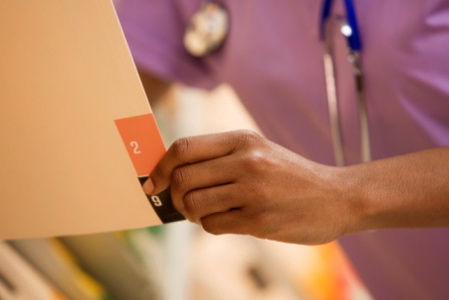Tips on Visiting the Emergency Room
0 Comments
If you think you should go to the ER, go ... quickly
People delay or even avoid necessary visits to the ER for many reasons: if they've never dialed 9-1-1 before, it often feels uncomfortable; ERs are typically filled to the brim with non-emergent cases that make wait times ridiculously long; interrupting what they're doing when a possible emergency strikes is inconvenient; they don't want to admit something could be seriously wrong with them. We have an astounding ability now to save lives and minimize disability, but that ability remains critically dependent on how much time elapses before an emergency reaches us. Two frequent refrains in medical circles are that "time equals heart tissue" and "time equals brain cells" when referring to the likelihood of minimizing the damage caused by heart attacks and strokes. Getty Images

Bring your medicines with you
Many people don't remember the names, much less the doses of medications they're on, especially if they're in pain or otherwise in distress. But providing names and doses to ER personnel is often critical to your care. If you're bringing someone else who's unconscious and retrieving their medication bottles won't delay your arrival, do so. Photo: Getty Images

Bring another person with you.
If they can’t come with you, have them meet you there. When you’re sick, you’re ability to process information is often compromised. You won’t necessarily understand what’s said to you or think to ask good questions about it. Also, when you’re sick, advocating for yourself is far harder--but even more necessary. ERs are busy places filled with busy people often overwhelmed with responsibility. From getting you another pillow to getting you more pain medication when you need it, encourage whoever joins you to be assertive in getting you the attention you need. Photo: Getty Images

Be inquisitive
Ask a lot of questions. Even write them down while you’re waiting. Why do they think you’re feeling that symptom? Why do they think you need that test? Why do you need that treatment? This isn’t just to quell your anxiety about what’s wrong with you or what to expect next, but to encourage the doctors caring for you to think more critically about your problem. Forcing them to explain their thinking forces them to clarify their thinking and that often leads to better thinking--which often leads to a better result for you. Photo: Getty Images

Ask them to call your primary care doctor
Sometimes the way doctors think about a medical problem changes dramatically when they’re familiar with the context in which it’s occurring. No doctor will know your history and context better than your primary care doctor, who can often provide critical information about you that alters the way the ER doctors think about your condition. Photo: Getty Images

Prepare yourself to wait
ERs have become enormous time sinks for even the moderately ill. In general, only truly emergent cases get seen quickly. Setting your own expectations realistically at the outset can greatly improve your experience. Be prepared not to eat or sleep for as long as you’re there and to return home hungry and exhausted. Photo: Getty Images

When you leave, make sure you do so with a copy of the ER doctor’s history and physical
Many hospitals have poor internal communication systems and the story of what happened to you in the ER will often remain unavailable to your primary care doctor. The most valuable information about your ER visit is not contained in the tests performed on you. It’s in the thinking of the doctors who saw you. Bring this note with you when you follow up with your primary care physician. Photo: Getty Images
Add a CommentComments
There are no comments yet. Be the first one and get the conversation started!